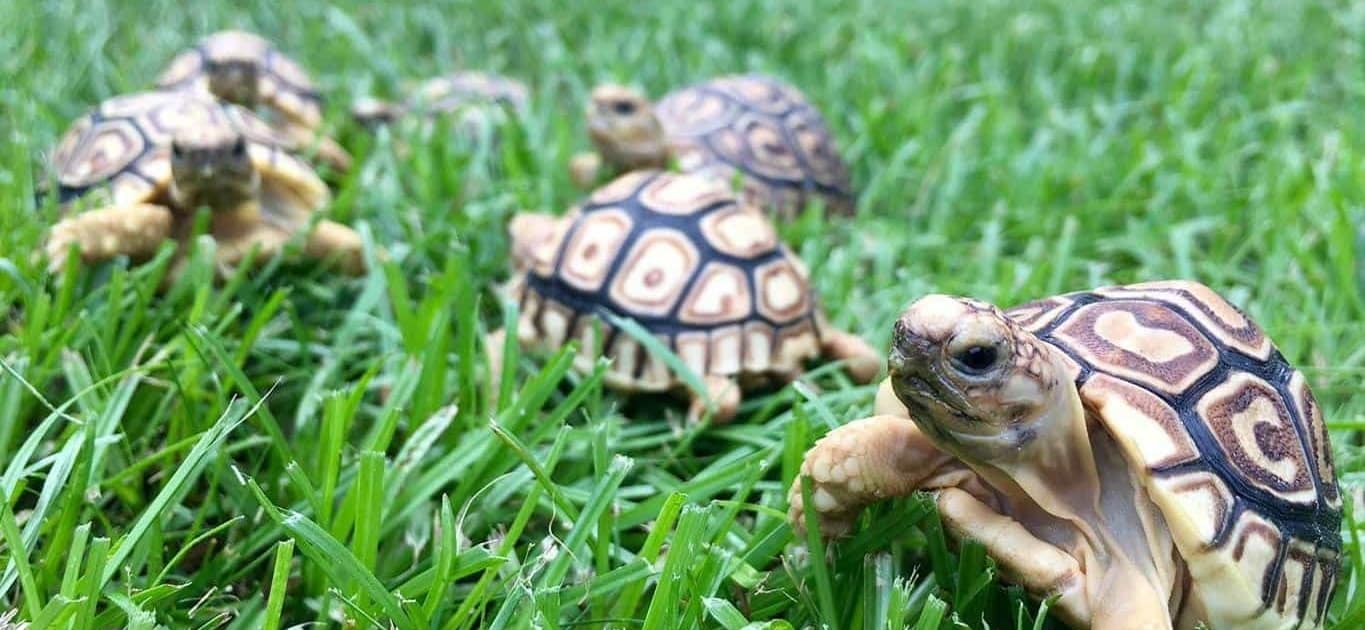
Generally the lifespan of a Greek tortoise in the wild is about twenty years. These species are endangered and uncommon in captivity.

Their lifespan in the wild is a little unknown but the 80-100 year captivity age is usually a little higher than wild tortoises.
Speckled tortoise lifespan in captivity. The speckled cape tortoise also known as the speckled tortoise or the speckled padloper is the smallest tortoise species in the world. In the wild members of this species can be found in areas of Little Namaqualand Namibia and western South Africa. These species are endangered and uncommon in captivity.
In captivity the Speckled Tortoise can feed on thinly sliced cucumber grated pumpkin courgettes butternut carrots diced tomatoes and some fruits like paw-paws. It is important to note that the Speckled Tortoise requires to be fed early in the morning removing. The head is dark and speckled with several yellow spots with the legs uniform brown.
Lifespan In the wild. 50 years Diet In the wild. Grasses young leaves roots and insects In captivity.
Mixed vegetables Incubation Period 220 250 days Clutch Size One egg up to three times per year Sexual Maturity 12 years of age Predators. Tortoises are known for their gargantuan lifespans with some species such as the giant tortoises of the Galapagos reportedly living for up to 200 years or more although the current verified record holder lived to be 188 years old. The typical Russian tortoise lifespan can exceed 40 years when healthy.
Like many other tortoise species these reptiles have a long life expectancy. However in this example the AVERAGE lifespan of the tortoises would be somewhere in the range of less than 1 year. As Tom points out above it is more accurate to say a tortoise lives until something kills it.
The Egyptian tortoise Testudo kleinmanni is also know as Kleinmanns tortoise or Leiths tortoiseThe native habitat of the Egyptian tortoise consists of desert and semi-desert scrub although this species is also found in salt marsh margins sandy gravel plains as well as the rocky escarpments of the wadis a stream bed that is usually dry except during the rainy season. Theyre generally easygoing pets as long as owners meet their specific care needs. However because these pet tortoises have a lifespan in captivity often of 50 years or longer prospective owners should think long and hard about whether they want to commit to caring for an animal that could easily outlive them.
The approximate life span according to experts may be well over 100 years. However most of the captive Russian tortoises live up to 50 years on an average under optimum living conditions. A small tortoise with a striking geometric patterned shell in yellow tan and black.
The head is speckled grey-brown and the legs and beak are yellow. Females are larger than males. 12 15 cm Weight.
250 650 g. Lifespan In the wild. Estimated at 30 50 years In captivity.
7 to 10 years in captivity. Their lifespan in the wild is a little unknown but the 80-100 year captivity age is usually a little higher than wild tortoises. Generally the lifespan of a Greek tortoise in the wild is about twenty years.
In captivity however they can live well over a hundred years. Be ready for a tortoise that may well outlive you if you want one of these sweet torts. Many people include them in their wills to be.
Include Russian tortoise Afghan tortoise Afghanistan tortoise steppe tortoise central Asian tortoise four-toed tortoise and Horsfields tortoise. Tortoises are particularly long-lived animals which are presumed to live as long as 70-100 years. In order to keep your tortoise in a temperate climate the pen must be placed in a very sunny location.
The floor should consist of soil as in the wild to enable burying and thermoregulation. Their life pattern in captivity is the same as in the wild. Giant tortoises are believed to be the longest living animals with an average lifespan ranging anywhere from 120-200 years.
The exact lifespan of giant tortoises has never been properly documented though most species in captivity have been observed to live over 100 years and more often outliving several generations of human beings.